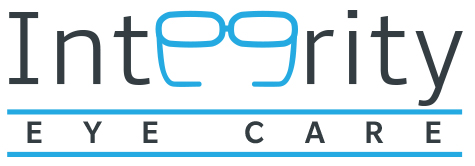When most people think about getting an eye exam, they think about updating their prescription for glasses or contact lenses. However, a comprehensive eye exam is not just about checking your vision. It’s also about assessing the overall health of your eyes. During a thorough examination, our skilled eye doctor, Dr. Garrett, will look for signs of various eye diseases and conditions such as glaucoma, cataracts, macular degeneration, diabetic retinopathy, and more. These conditions can often develop without any noticeable symptoms, so it’s crucial to have regular eye exams to catch them early.
Vision problems
First, a comprehensive eye exam can detect common vision problems such as nearsightedness, farsightedness, and astigmatism. These issues can often be corrected with prescription glasses or contact lenses to help you see clearly and comfortably. Even if you think you have perfect vision, your vision can change gradually over time without you noticing. That’s why you should schedule regular eye exams to make sure you’re still seeing your best, especially if you currently wear glasses or contact lenses.
Glaucoma
This disease causes damage to the optic nerve, often due to increased pressure within the eye. Referred to as the “silent thief of sight,” glaucoma typically has no symptoms in the early stages. Without early detection and treatment, glaucoma can lead to permanent vision loss. Fortunately, with regular eye exams, Dr. Garrett can spot early warning signs of glaucoma and provide you with the necessary treatment to prevent further damage.
Macular degeneration
As you age, your eyes become more susceptible to certain eye diseases, including age-related macular degeneration. This disease affects your central vision and can progress rapidly if left untreated. By monitoring changes in your retina and macula during an eye exam, Dr. Garrett can catch signs of macular degeneration early on (before you have any symptoms) and recommend treatment to slow its progression and protect your eyesight.
Diabetic retinopathy
For patients with diabetes, regular eye exams are crucial for detecting diabetic retinopathy. This condition occurs when high blood sugar levels damage blood vessels in the retina, leading to vision problems or even blindness if left untreated. During a comprehensive eye exam, Dr. Garrett can monitor changes in your retina and identify early signs of diabetic retinopathy and other eye complications associated with diabetes.
Cataracts
Cataracts are another common condition that can be detected during an eye exam. As we age, the lens in our eyes becomes cloudy, causing blurry vision, light sensitivity, and poor night vision. During an eye exam, Dr. Garrett can assess the clarity of your lens and detect early signs of cataracts before they significantly impact your vision. If cataracts are significantly impacting your vision and quality of life, our team will refer you to an ophthalmologist for cataract surgery and co-manage your care before and after the procedure to ensure a smooth recovery.
Hypertension and high cholesterol
Believe it or not, Dr. Garrett can also detect certain systemic conditions like hypertension and high cholesterol during an eye exam. Changes in the blood vessels at the back of the eye may indicate underlying health issues such as high blood pressure or elevated cholesterol levels. By identifying these changes during an eye exam, he can recommend further testing or treatment to manage these conditions effectively.
The next time you schedule an appointment for an eye exam in Murfreesboro, TN, remember that it’s not just about updating your glasses prescription—it’s about maintaining your overall health as well! From detecting common conditions like glaucoma and cataracts to identifying signs of systemic diseases like hypertension and high cholesterol, a comprehensive eye exam plays a crucial role in maintaining optimal vision and wellness. So don’t put off scheduling that appointment any longer—request an appointment at our office today!



